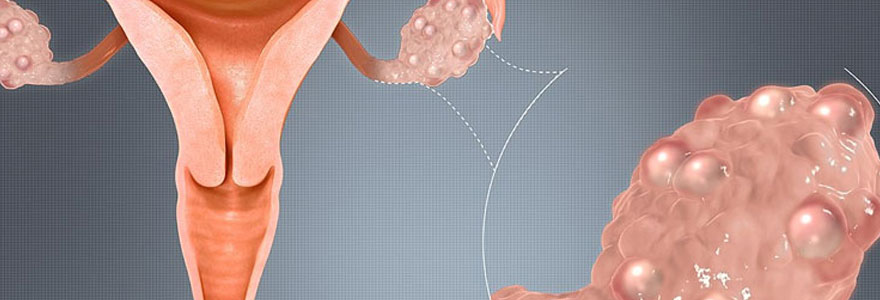
Dr. Amrita Khatri
M.D., B.H.M.S.Book Appointment
Polycystic Ovary Disease

Polycystic Ovary Syndrome (PCOS), often referred to as Polycystic Ovary Disease, is a common hormonal disorder that affects people with ovaries, primarily during their reproductive years. PCOS is characterized by a combination of symptoms related to hormonal imbalances and the ovaries. It is one of the leading causes of infertility in individuals with ovaries.
Treatment plans are individualized based on the specific symptoms and needs of each person with PCOS. Early diagnosis and comprehensive management can help reduce the risk of long-term complications and improve overall well-being.
Symptoms of Polycystic Ovary Syndrome (PCOS)
- Irregular Periods: Menstrual cycles that are infrequent, irregular, or absent.
- Ovarian Cysts: Multiple small fluid-filled sacs (cysts) on the ovaries, which can be detected via ultrasound.
- Excess Androgen Levels: Elevated levels of male hormones (androgens) leading to symptoms such as excessive facial or body hair (hirsutism) and acne.
- Weight Gain: Unexplained weight gain or difficulty losing weight, often concentrated around the abdomen.
- Acne: Persistent acne, particularly on the face, back, and shoulders.
- Thinning Hair: Hair thinning or male-pattern baldness, often on the scalp.
- Scalp Hair Loss: Receding hairline or thinning hair on the scalp.
- Infertility: Difficulty conceiving due to irregular ovulation or anovulation (lack of ovulation).
- Dark Patches of Skin: Hyperpigmented skin patches, particularly in areas like the neck, armpits, or groin (acanthosis nigricans).
- Pelvic Pain: Chronic pelvic pain or discomfort due to enlarged ovaries or ovarian cysts.
- Mood Swings: Emotional disturbances such as depression or anxiety.
Causes of Polycystic Ovary Syndrome (PCOS)
- Hormonal Imbalance: Elevated levels of androgens (male hormones) and insulin resistance contribute to the development of PCOS.
- Genetics: A family history of PCOS or related conditions may increase the risk, suggesting a genetic predisposition.
- Insulin Resistance: The body's inability to effectively use insulin, leading to high blood sugar levels, which can contribute to PCOS symptoms.
- Inflammation: Chronic low-grade inflammation in the body, which may play a role in the development of PCOS and its symptoms.
- Obesity: Excess body weight can exacerbate insulin resistance and contribute to the development and severity of PCOS.
- Increased Androgen Production: The ovaries produce excess male hormones (androgens), leading to symptoms like acne and excessive hair growth.
- Environmental Factors: Certain lifestyle factors, such as diet and physical inactivity, can influence the risk of developing PCOS.
- Altered Hormone Regulation: Disruptions in the normal regulation of reproductive hormones can lead to irregular menstrual cycles and ovulatory dysfunction.


